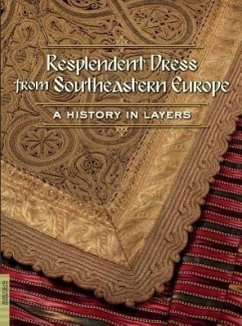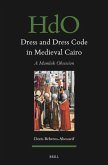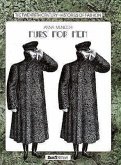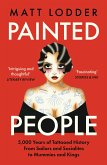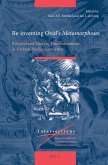In the past, girls from rural southeastern Europe spent their childhoods weaving, sewing, and embroidering festive dress so that upon reaching puberty they could join the Sunday afternoon village dances garbed in resplendent attire. These extremely colorful and intensely worked garments were often adorned with embroidery, lace, metallic threads, coins, sequins, beads, and, perhaps most importantly, fringe, a symbolic marker of fertility. Over time new forms of dress were added so that by 1900, a southeastern European village woman's apparel consisted of millennia of layered history. Even today this dress continues to be worn on festive occasions and by older people in rural areas. Lavishly illustrated, Resplendent Dress from Southeastern Europe features fifty stunning nineteenth- through twentieth-century ensembles from Macedonia, Croatia, Albania, Montenegro, and neighboring countries, plus one hundred individual items including aprons, vests, jackets, and robes. Elizabeth Wayland Barber traces this twenty-thousand-year tradition of dress in fascinating detail.
Hinweis: Dieser Artikel kann nur an eine deutsche Lieferadresse ausgeliefert werden.
Hinweis: Dieser Artikel kann nur an eine deutsche Lieferadresse ausgeliefert werden.

